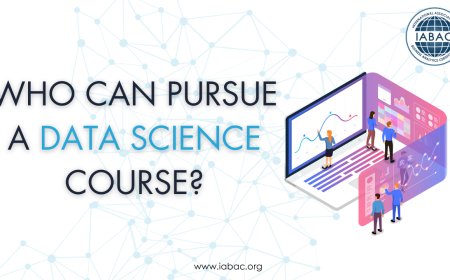Challenges Faced by Big Data Scientists and How to Overcome Them
Discover challenges in Big Data science and effective solutions. Navigate hurdles with insights on overcoming obstacles faced by professionals in this dynamic field.

Big data is becoming a big deal across different industries. More and more companies are realizing its value, and that's where big data scientists come in. These are the folks who make sense of all the massive amounts of data out there. As the need for big data scientists grows, so does the demand for their skills. Companies want these experts to help them make better decisions, find trends, and turn all that data into something useful. But, it's not all smooth sailing. Being a big data scientist comes with its own set of challenges. We'll dig into those in a bit. For now, just know that big data is a game-changer, and the people who understand how to work with it are in high demand.
The Big Data
Big Data is like dealing with a massive jigsaw puzzle. It's not just a lot of data; it's like having puzzle pieces scattered everywhere. We're talking about data from social media, sensors, transactions, you name it. It's a bit like trying to drink from a fire hose! They're the ones who make sense of the mess. They use fancy tools and tricks to analyze and interpret all this data. It's not just about numbers; it's about finding patterns, making predictions, and discovering hidden insights that can help businesses and organizations make smarter decisions.
Why Big Data Matters in Decision-Making
So, why should you care? Well, big data is like having an exceptionally smart companion who can predict the future. It helps decision-makers see the bigger picture and make better choices. Whether you're a business trying to understand customers or a healthcare provider predicting disease outbreaks, Big Data is your secret tool.
Common Challenges for Big Data Scientists
Lack of Quality Data
Data Accuracy and Completeness Issues: One big challenge is dealing with data that are not accurate or complete. It's like trying to solve a puzzle with pieces that don't quite fit. We need data to be both accurate and complete to make sense of it.
Impact on Analysis Outcomes: Poor data quality is like using a recipe with missing ingredients or wrong measurements. The outcomes of our analyses may not be reliable. It's like building a house on a shaky foundation, not a good idea.
Scalability Issues
Handling Large Volumes of Data: Big data means dealing with a lot of information. It's like carrying a massive stack of books, not easy! Traditional methods struggle to handle such large amounts of data, and that's where we need smarter tools and strategies.
Limitations of Traditional Processing Methods: Think of traditional data processing methods like old-school calculators trying to handle complex math problems. They might get overwhelmed. When we're dealing with huge datasets, the usual approaches hit their limits. We need better methods to keep things running smoothly.
Privacy and Security Concerns
Ethical and Legal Challenges: Handling sensitive data is like holding a fragile glass sculpture. We need to be super careful. There are ethical and legal challenges, we can't treat all data the same way. Privacy laws and ethical considerations make our work more complex.
Importance of Effective Security Measures: Just like you lock your front door to keep intruders out, we need to secure our data. Implementing strong security measures is crucial. We can't risk sensitive information falling into the wrong hands. It's not just about following rules; it's about safeguarding trust.
Skill Shortages
Gap in Skilled Professionals: Addressing the shortage of skilled professionals in big data is imperative for sustained progress. As a proficient big data scientist, I emphasize the need for comprehensive skill development to bridge this crucial gap and propel advancements in the field.
Evolving Skill Set: The skills needed for effective big data analysis are always changing. Staying relevant means constant learning. We're not just crunching numbers; we're also keeping up with the latest tools and methods.
Rapid Technological Advancements
Keeping Up with Evolving Technologies: That's how it feels with constantly evolving technologies in big data. We need to stay on our toes, learning and adapting to new tools and methods regularly.
Impact on Big Data Strategies: Technological advancements aren't just cool gadgets; they shape how we approach big data. It's like upgrading from a map to GPS. it changes the game. Our strategies need constant tweaking to make the most of these advancements. It's a challenge, but it keeps things interesting!
How Do Big Data Scientists Overcome These Challenges?
Developing Data Quality Protocols
Data Accuracy and Completeness:
Ensuring data accuracy involves using checks to find and fix errors. Completeness is achieved by addressing missing data through techniques like imputation or acquiring additional data sources.
Role of Data Governance:
Data governance involves creating clear policies and procedures for managing data. This includes defining data ownership, setting quality standards, and creating processes for data access and usage.
Implementing Scalable Solutions
Scalable Data Processing:
Big data scientists use distributed computing frameworks like Apache Hadoop and Apache Spark. These frameworks allow the parallel processing of large datasets across clusters of computers, enabling efficient handling of massive volumes of data.
Importance of Cloud Computing:
Cloud computing provides on-demand access to a scalable and flexible computing infrastructure. Services like AWS, Azure, and Google Cloud offer the ability to scale resources dynamically, optimizing costs and allowing for quick adaptation to changing workloads.
Ethical Data Handling
Ethical Considerations:
Big data scientists prioritize ethical considerations by obtaining informed consent, anonymizing sensitive data, and ensuring fair and unbiased data practices. They actively communicate with stakeholders to establish trust and transparency, making ethical considerations an integral part of the data analysis process.
Role of Regulations and Guidelines:
Adherence to data protection regulations such as GDPR, HIPAA, or CCPA is non-negotiable. Big data scientists familiarize themselves with these frameworks, implement necessary safeguards, and stay abreast of updates to ensure compliance. This not only protects individual privacy but also shields organizations from legal implications.
Continuous Learning and Skill Development
Ongoing Education:
Big data scientists engage in continuous learning through online courses, workshops, and industry conferences. Staying informed about the latest tools, techniques, and best practices allows them to adapt to the changing landscape of big data technologies.
Importance of Adaptability:
The field of big data is dynamic, with new technologies emerging regularly. Big data scientists embrace adaptability by cultivating a mindset that welcomes change. This enables them to quickly adopt new tools, methodologies, and frameworks, ensuring their skill set remains relevant.
Adopting Agile Practices
Benefits of Agile Methodologies:
Agile methodologies, such as Scrum or Kanban, break down complex projects into smaller, manageable tasks known as sprints. This iterative approach fosters collaboration, accelerates project delivery, and allows for frequent reassessment and adjustment based on feedback.
Enhancing Flexibility and Responsiveness:
Agile practices enhance flexibility by accommodating changes in project requirements without disrupting the entire workflow. Regular communication and collaboration among team members and stakeholders promote responsiveness to evolving business needs, ensuring that big data projects align with organizational goals.
Strategies for Overcoming Big Data Challenges
Collaboration and Interdisciplinary Teams
Effective collaboration between data scientists and domain experts is crucial in solving real-world problems. By combining technical expertise with practical insights, teams can deliver impactful solutions. Teams with a variety of skills and perspectives are better equipped to address complex challenges. Diverse groups bring fresh ideas, leading to innovative solutions that might be overlooked in more homogenous teams.
Utilizing Advanced Analytics and Machine Learning
Advanced analytics and machine learning significantly enhance the accuracy of data analysis. They not only provide deeper insights but also automate repetitive tasks, allowing more focus on strategic activities. Automation streamlines routine tasks, freeing up time for more strategic endeavors. Machine learning algorithms handle repetitive processes, enabling the workforce to concentrate on tasks requiring human creativity and critical thinking.
Investing in Continuous Training Programs
Continuous training is essential in the rapidly changing field of big data. Organizations must invest in employee development to stay abreast of the latest technologies and methodologies. Mentorship programs contribute to skill development by creating a knowledge-sharing environment. Pairing experienced professionals with eager learners fosters growth and adaptability within the organization.
Implementing Robust Security Measures
Ensuring the security of sensitive data is paramount. Encryption and anonymization techniques safeguard against unauthorized access, preserving the integrity and confidentiality of valuable information. Establishing strong cybersecurity protocols is non-negotiable. These protocols defend against potential threats, maintaining stakeholder trust and safeguarding the organization's reputation.
Embracing a Culture of Innovation
Fostering a culture that encourages innovation is a powerful driver of success in handling big data challenges. Companies should actively create an environment supporting experimentation, where employees feel empowered to explore new ideas without fear of failure. Encouraging a culture of innovation inspires creativity and out-of-the-box thinking. This not only fuels technological advancements but also positions the organization as a leader in the field of big data.
In conclusion, while big data scientists face formidable challenges, the dynamic nature of the field ensures that there is always room for growth and innovation. By staying adaptable and optimistic, big data scientists can not only address current challenges but also contribute to shaping a promising future for the field. There are opportunities to be explored due to the uncertain nature of big data, making it an exciting time to be part of this ever-expanding domain.











































